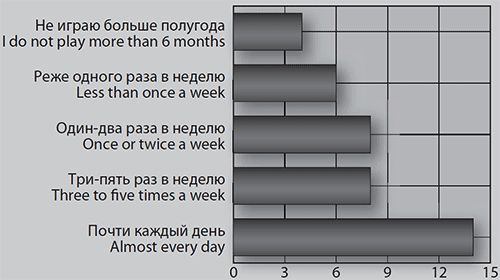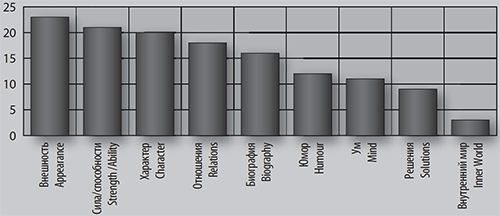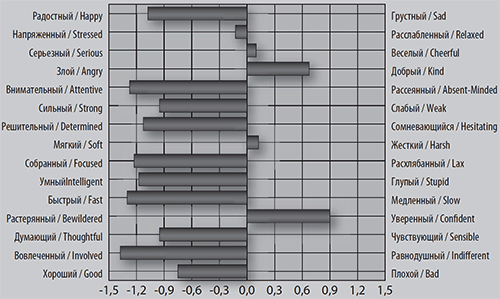Article
Makalatia A.G., Matveeva L.V. (2017). Subjective factors that influence children and adolescents to be attracted by computer games. National Psychological Journal. 1, 15-24.
Abstract
The paper describes research on the role and place of computer games in the lives of children and adolescents, and also perceiving how young gamers estimate the impact of various aspects of computer games and experience games in general on themselves.
The study involved gamers between the age of 11 and 19 years. The study is conducted using surveys and interviews. The issues are related to those aspects of games that are perceived as most important, attractive, and cause the greatest emotional response, and also determine the selection of games; how users appreciate game characters including users’ attitudes to the games and the place of the computer game in their lives.
The study revealed that children and adolescents generally have a positive attitude towards computer games and find them a useful and enjoyable part of life, they do not feel shame and remorse for wasting time playing computer games, and are going to continue to play on into adulthood. Playing computer games they learn to communicate and make decisions.
The most important aspect of evaluating game characters is their visual representation.
The character appearance in the game is one of the main factors of their attractiveness. Adolescents do not appreciate only important aesthetic component of the visual images, but also their meaning: reflection of personality or actions of characters in visual images.
Preferences in selecting games are largely determined by the player actions in the game rather than the game plot. For adolescents computer game is an opportunity to try themselves in different situations and get the experience of interacting with other people, who may get inaccessible in real life. A computer game for children is a model of a successful living, so it can be used as a means of personal self-development. Computer games make a full-fledged sphere of life in adolescents through which they gradually realize the importance of school and studies, sports, and hobbies. Playing computer games adolescents relax, socialize and gain social and cognitive skills
Accepted: 02/15/2017
Pages: 15-24
DOI: 10.11621/npj.2017.0102
PDF: Download
Keywords: computer games; children; adolescents; developing activity; subjective attraction; identification with game character;
Available Online 30.03.2017

Fig. 1. The frequency of the games based on the sample (The vertical axis represents the frequency of games, the horizontal axis denotes the number of subjects)

Fig. 2. Categories of assessing favourite character. The vertical axis represents the frequency of mentioning the relevant category.

Fig. 3. Retrospective self-assessment of subject’s condition during the game
References:
Anderson, C. A., Shibuya, A., Ihori, N., Swing, E. L., Bushman, B. J., Sakamoto, A., Rothstein, H. R., Saleem, M., & Barlett, C. P. (2010) Violent video game effects on aggression, empathy, and prosocial behavior in Eastern and Western countries: A meta-analytic review. Psychological Bulletin.Vol. 136(2), 151-173. doi: 10.1037/a0018251
Bogachev, N.V., & Voiskunsky, A.E. (2014) Specificity of cognitive styles and the control function, the gamers. [Psikhologicheskie issledovaniya]. Vol. 7, 38, 1.
Bogachev, N.V. (2015) Computer games and psychological specificity of cognition gamers (conclusion). [Vestnik Moskovskogo universiteta]. Series 14. Psychology. 1, 94-103.
Bogachev, N.V. (2014) Computer games and psychological specificity of cognition gamers [Vestnik Moskovskogo universiteta]. Series 14.Psychology. 4. 120-130.
Csikszentmihalyi, M. (2011) Flow: The psychology of optimal experience. Moscow, Alpina non-fiction.
El’konin, D.B. Psychology of the game. Moscow, 1978.
Ivanov, M. (2003) Influence role of computer games on developing the human psychological dependence on computer. [Psikhologicheskiy zhurnal]. Vol. 24(2), 41- 47.
Makalatia, A.G. (2003) Motivation in Computer Games. [3-ya Rossiyskaya konferentsiya po ekologicheskoy psikhologii (Moskva, 15-17 sentyabrya 2003 g.)]. Moscow, Psikhologicheskiy institut RAO, 358-361.
Makalatia, A.G. (2016) Meanings and values in modern computer games. [Deyatel’nyyum: ot gumanitarnoy metodologii k gumanitarnym praktikam. Materialy mezhdunarodnogo kongressa, posvyashhennogo 80-letiyu so dnya rozhdeniya A.A. Leont’eva]. Vol. 2. Moscow,Smysl, 93-97.
Matveeva, L.V., Makalatiya, A. G. & Anikeeva, T. J. et al (2016) Effects of computer games on children and adolescents in the aspect of information-psychological security. [Psikhologiya diskursa:problemy determinatsii, vozdeystviya, bezopasnosti (Eds.) A.L. Zhuravlev, N.D. Pavlova, & I.A.Zachesova]. Moscow, Izdatel’stvo «Institut psikhologii RAN», 242-268.
Matveeva, L.V., Anikeeva, T. I., Mochalov, Yu.B., & Makalatia, A.G. (2016) Perception of emotional states in the information communication. [Vestnik Moskovskogo universiteta]. Series 10. Journalism. 2, 23-39.
Sobkin, V.S. (2016) Modern teenager in social networks. [Pedagogika]. 8, 61-72.
Soldatova G.U., Rasskazova E.I. (2016). Models of digital competence and online activity of Russian adolescents. National Psychological Journal [Natsional’nyy psikhologicheskiy zhurnal],2, 50-60. doi: 10.11621/npj.2016.0206
Tendryakova, M.V. (2008) Old and new faces of the game: the game of virtual space specificity. [Kul’turno-istoricheskaya psikhologiya]. 2, 60-68.
Van, Sh., Voiskunsky, A.E., Mitina, O.V., & Karpukhina, A.I. (2011) Communication flow experience psychological dependence on computer games. [Psikhologiya. Zhurnal VShE]. 4, 73-101.
Velichkovsky B.B. (2014). Psychological factors of the emerging sense of presence in virtual environments. National Psychological Journal [Natsional’nyy psikhologicheskiy zhurnal]. 3, 31-38. doi: 10.11621/npj.2014.0304
Voiskunsky, A.E. (2010) Does aggressiveness develop in children adolescents, enthusiastic computer games? [Voprosy psikhologii]. 6, 133-143.
Voiskunsky, A.E. (2000) The phenomenon of Internet dependence. [Gumanitarnye issledovanija v Internete (Ed). A.E. Voiskunsky]. Moscow, 100-131.
Young, K.S. (2000) Internet addiction diagnosis. [Mir Interneta]. 2, 24-29.
Young, M. F., Slota, S., Cutter, A. B., Jalette, G., Mullin, G., Lai, B., & Yukhymenko, M. (2012) Our princess is in another castle: A review of trends in serious gaming. Review of Educational Research. 82(1), 61–89. doi:10.3102/0034654312436980
Zinchenko, Yu.P., Shaygerova, L.A., & Shilko, R.S. (2011) Psychological safety of the individual and society in the modern information space. National Psychological Journal [National psychological journal]. 2, 48-59.
For citing this article:
Makalatia A.G., Matveeva L.V. (2017). Subjective factors that influence children and adolescents to be attracted by computer games. National Psychological Journal. 1, 15-24.


